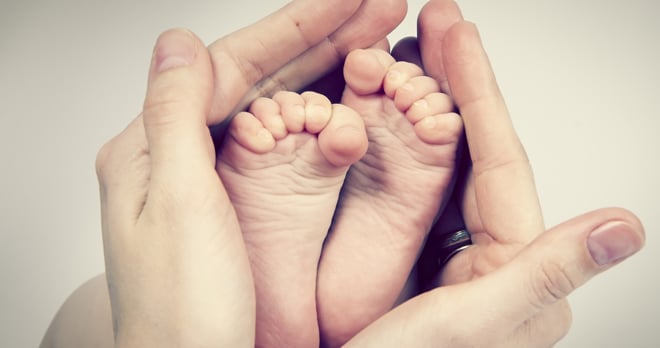Group B Strep Awareness Month – why it’s important to raise awareness

July is Group B Strep Awareness Month, coordinated by the UK charity Group B Strep Support. So why is it so important to be aware of GBS in pregnancy? Our client’s mother’s story shows the importance of knowing about private GBS testing options and how the life of her daughter and family would have been monumentally different, if only she had been given full information by her NHS midwife.
Baby Eve* was born in 2019, a first and desperately wanted baby for her parents. Everything had progressed smoothly in the pregnancy and early labour. During the delivery baby Eve began to show difficulties, so she was safely delivered in theatre with forceps. Baby Eve took to the breast immediately and everyone was elated.
Within an hour of her birth her Mum started to become concerned as she was refusing to breastfeed again, was either sleeping or very distressed, and simply didn’t “seem right”. The midwives suggested expressing milk to cup feed and reassured Mum that all was well. Later on that day baby Eve was sent home, despite Mum’s concerns that she was not feeding and had a strange cry.
In the early hours of the next morning Eve’s parents rushed her back into hospital where she was not admitted to the neonatal unit, remaining under midwifery care on the maternity ward. Eve then suffered a respiratory collapse on the ward and required extensive resuscitation. On admission to NICU Eve was diagnosed with meningitis subsequent to GBS infection. She was on life support care and her parents were told that she had suffered a significant brain and spinal injury; she has subsequently been diagnosed with severe cerebral palsy.
Eve’s mother of course has read extensively about GBS colonisation in pregnancy since this traumatic course of events, and on instructing me to represent her daughter reflected that "I did want to do a GBS test when I was pregnant, but was told it wasn’t available."
“I wish I had undergone a test”
The cruel truth about this case is that Eve’s mother did know about GBS; she was generally well informed and dedicated to achieving a safe and healthy pregnancy.
Eve’s Mum told her midwife during the pregnancy that she wanted a GBS test done, but her midwife sternly rebuked her, telling her that it was not available on the NHS and therefore wasn’t needed. Very sadly the midwife did not take the raised concerns seriously and did not advise that there were options to procure a test privately, for just £40. On this basis Mum was made to feel that she had made an unjustified request and her concern was diminished.
This lack of support and information for mothers is really shocking and, to my mind, unacceptable – particularly where a mother specifically asks for the test to be done and seeks guidance on it. Even if the midwife does not consider GBS testing a requirement, surely a mother’s need for peace of mind is, and in respecting that she was able to refer her via Group B Strep Support for private testing.
Even though the risk of complications of GBS colonisation are low, the seriousness of the complications can be so extreme that seeking testing for it is entirely sensible and is indeed the focus of research and campaigns to make universal testing routine as part of NHS Maternity care.
What difference would a test have made?
If a mother is known to be a GBS carrier at any point during her current pregnancy then her maternity records should be clearly marked up to note the mother is GBS positive. This alerts staff to offer the mother protective IV antibiotics during labour; or if there is insufficient time to do so, to closely monitor the newborn baby, and give antibiotics if there are any signs of infection. These steps almost eliminate the risks of a baby colonised with GBS from going on to develop a systemic infection. In the case of Eve it would have prevented her developing meningitis, suffering respiratory collapse and her severe brain injury.
So this is why this campaign for GBS awareness is SO important, for the more women are informed and enabled to seek testing in pregnancy, the more lives of babies affected by GBS can be saved and serious injuries prevented.
*The name of our client has been changed to protect her privacy.
Contact our enquiries team to find out whether our birth injury experts can help you to claim compensation for negligent treatment of Group B Strep.
Call now